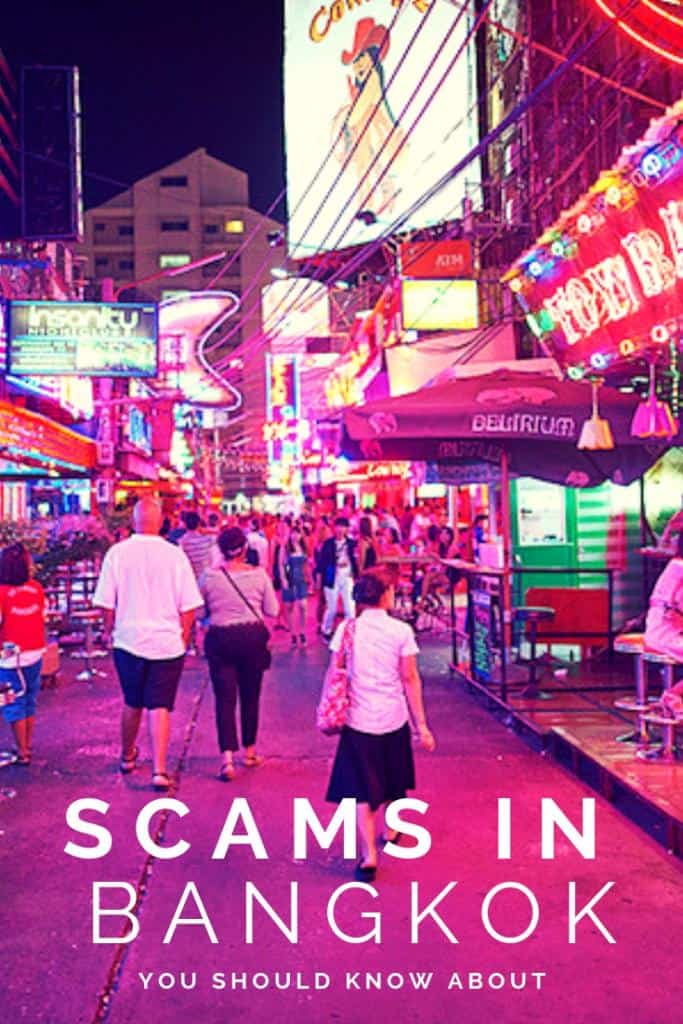Tourism is big business in Thailand. More and more foreign visitors flock to Thailand each year. Unfortunately, as the number of tourists in Thailand grows the number of scam artists out to victimize them also increases. Don’t be too quick to cast judgment, though. Every city in the world has scams. The chances of you getting scammed in Thailand are low overall. If you’re aware and alert, the chances of you being scammed come down to nearly zero.
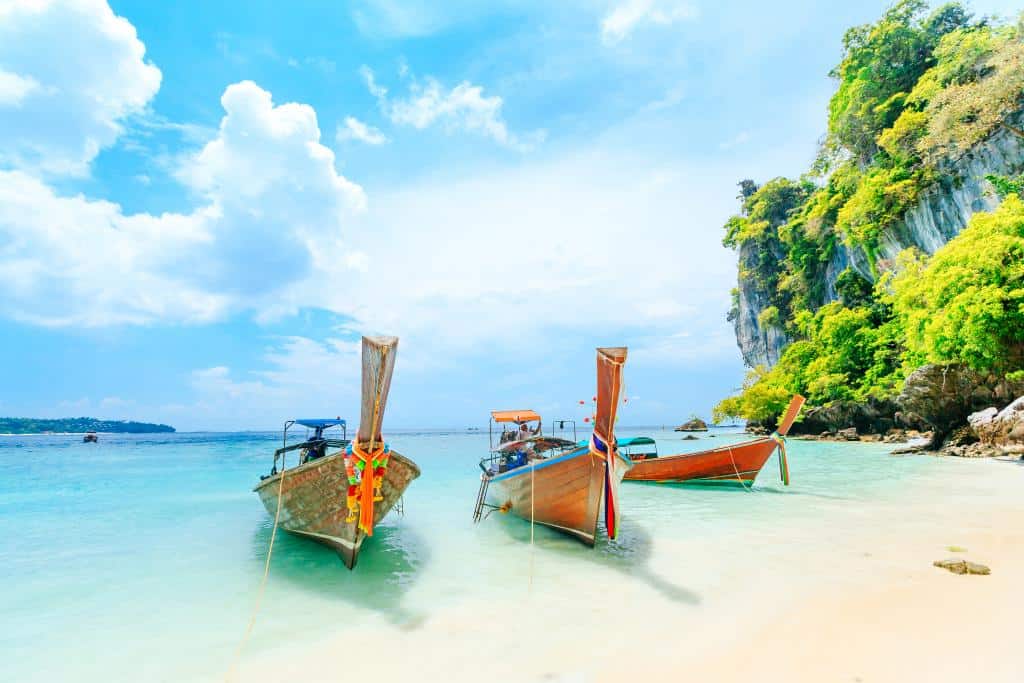
Both Thailand and Bangkok are statistically safer than many major European and U.S cities. The advice in this article is specific to Thailand but would serve you well anywhere. Generally, Thailand is a safe, friendly, happy country. It’s important to note, too, that the Thai Ministry of Tourism and Tourism Police are working hard to decrease the small number of scams that do occur. Here we have consolidated a list of the Top 10 Thailand scams and Bangkok scams. We hope after reading this you feel more informed for your next visit to Thailand. Most importantly, we hope it helps you have an awesome experience!
Disclaimer – These scams are a mixture of our own personal experiences and information collated from sources. Sources include forums, review sites, and websites. See the bottom of the article for a full list.
The Grand Palace is Closed
As soon as you get close to the Grand Palace, you will probably start hearing random strangers (like tuk-tuk and taxi drivers) tell you that “the Grand Palace is closed right now” due to some special Buddhist ceremony. Then they will suggest an alternative location such as the Sitting Buddha/Lucky Buddha/Marble Temple and say that today is the time of year when it is open. Once you agree to their suggestion, though, you will probably end up at some jewelry or tailor shop. Here they’ll coerce you into buying overpriced products. Some can even lock you in the shop until you agree to buy.
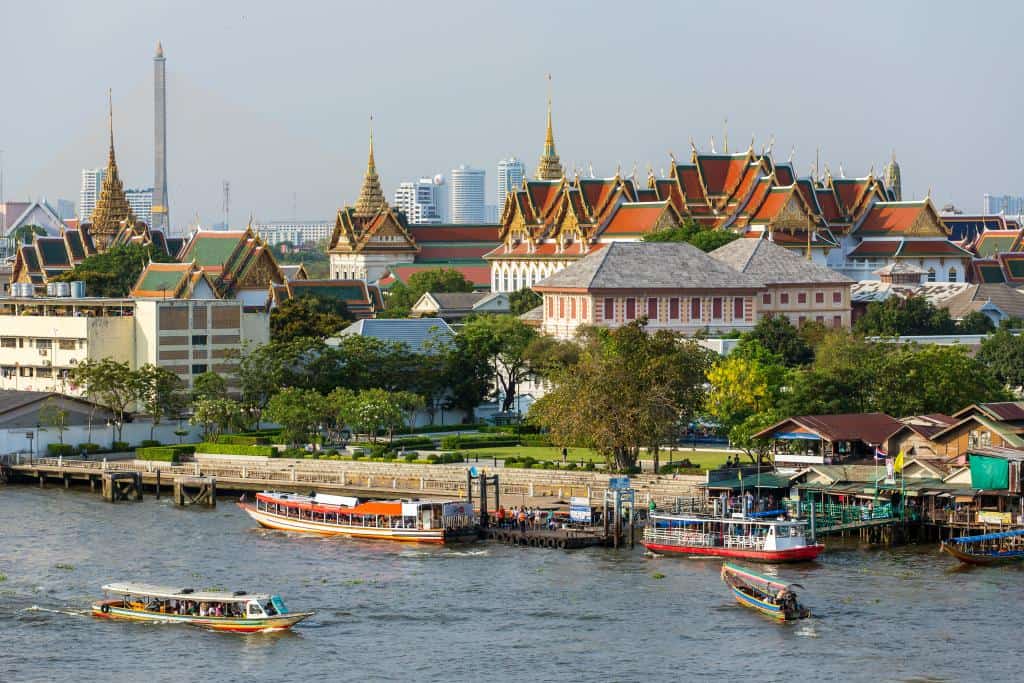
Be informed and always check the operating hours of tourist spots. The Grand Palace (see our 10 Things To Do In Bangkok post) is open from 8:30 am to 3:30 pm. We suggest that if anyone tells you the Palace is closed, you simply thank them and tell them you are going to go look at the outside. That way you avoid any fuss and you are still polite in case it’s a rare occasion where the Palace really is closed! If you think you are being scammed do not mention it in the conversation. Instead, simply smile and make a graceful exit.
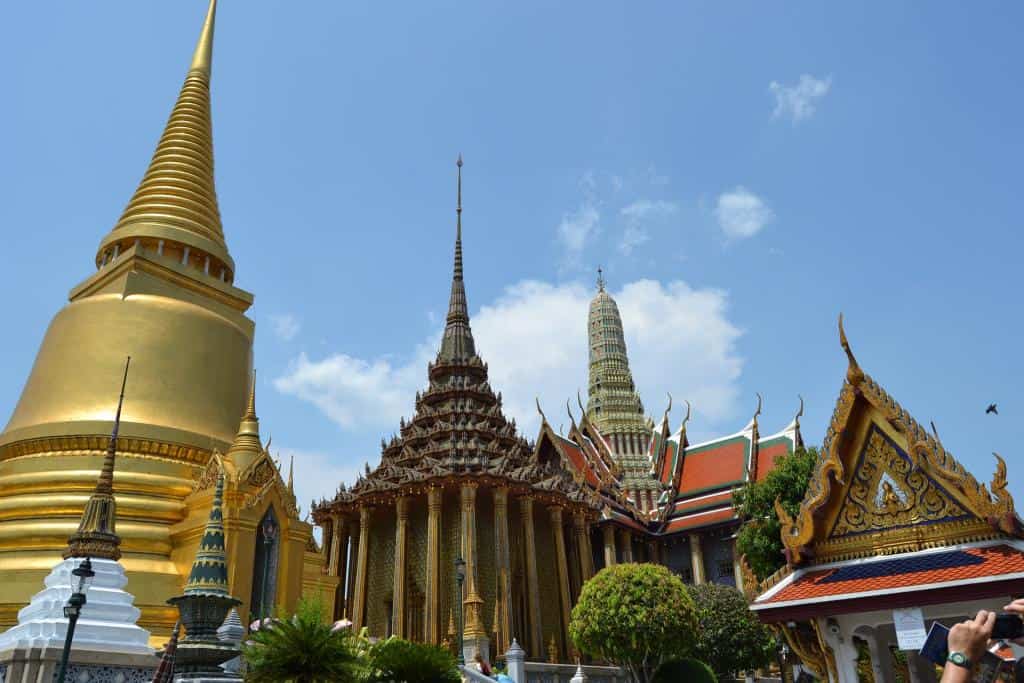
Thai Gems
If you are not a gem expert, DO NOT engage with people that openly offer you Thai Gems. The typical scenario happens when someone tells you about a place where you can buy cheap gems. Usually, a jewelry shop owner will tell you that gems are cheap in Thailand because they are abundant and that you will make a lot of money when you resell them back home. They might even convince you with some “government-sponsored sale.”
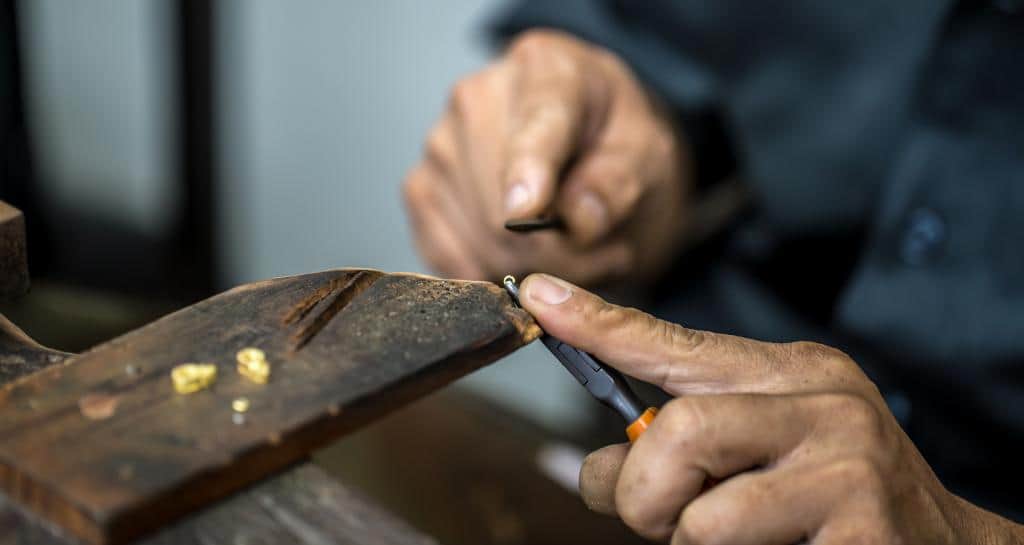
Also be aware of those that sometimes pretend to be tourists and claim that they just bought a beautiful piece of jewelry at a very low price. In the majority of cases, these gems are really worthless pieces of glass or synthetic materials. If you do want to buy gems in Thailand, look for industry accredited jewelry retailers and quality references online. These will prove the authenticity of the products you are buying.
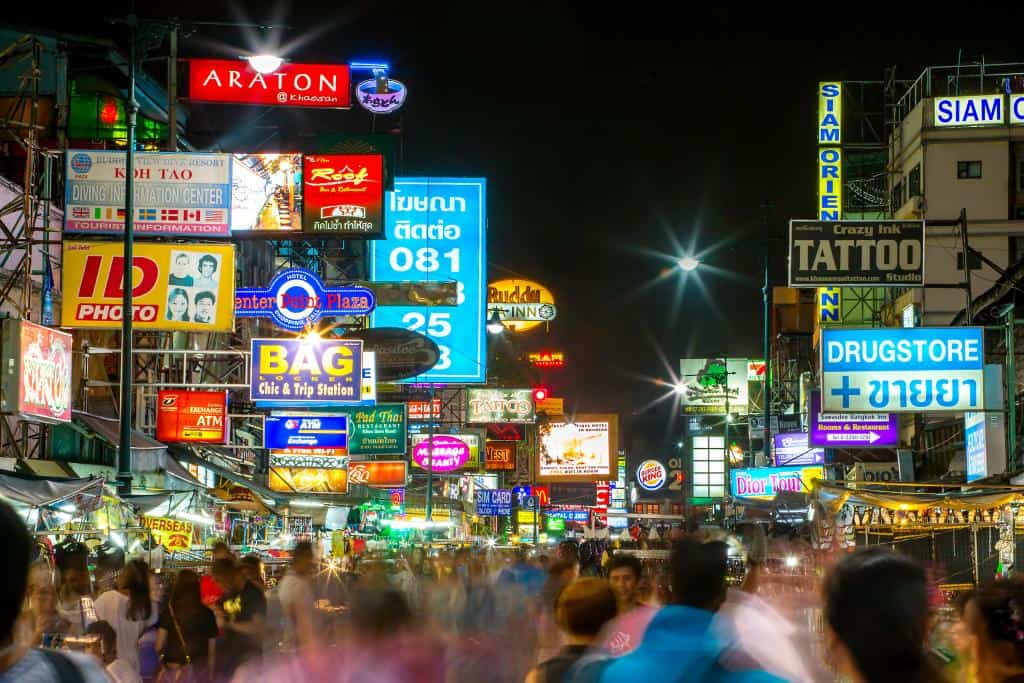
Tuk-Tuks Scams
Thailand’s tuk-tuks are three-wheeler auto rickshaws. They’ve widely used transportation in Bangkok and other Thai cities. Tuk-tuk scammers are known to offer very low prices for day tours. Some may even say it’s a special offer because today is “Thai Tourism Day.” Usually, the unsuspecting tourist will then be taken for a ride to some jewelry or tailoring shop where the tuk-tuk driver will earn a commission on their purchases. First, they’ll inquire about your itinerary. Then they’ll start to make suggestions. They’ll claim that the places you want to see might be closed, but there are other places where they can bring you. It is not unusual for the odd person to be taken out of town to somewhere secluded. The driver’s motive is to charge a high priced return fare back to the city because “it is out of their way.”
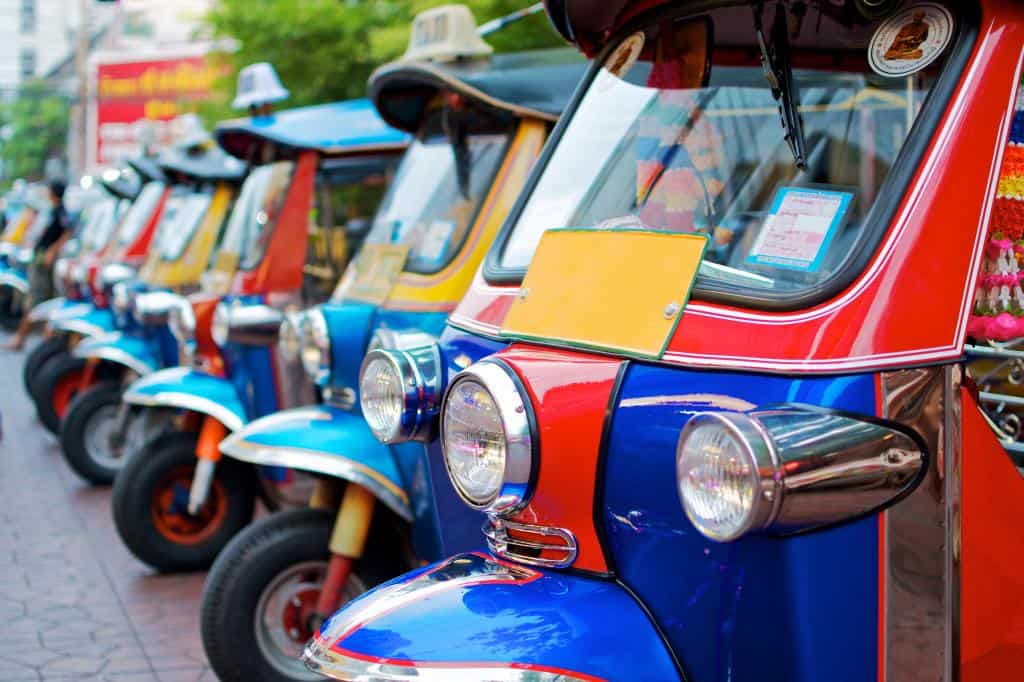
Every time you get in a tuk-tuk, agree to a price upfront. Don’t haggle excessively with the driver. In almost every case, he’s only looking to get a fair price for his work. Make sure that the agreed price covers the whole itinerary of your journey, including the return. And again, always be polite — in general, this rule will get you a long way in Thailand. Most tuk-tuk drivers are polite and honest. Checking the price beforehand politely will almost always be received well. They should be happy to confirm everything with you before you board the tuk-tuk. This will take the stress out of the rest of your trip or day.
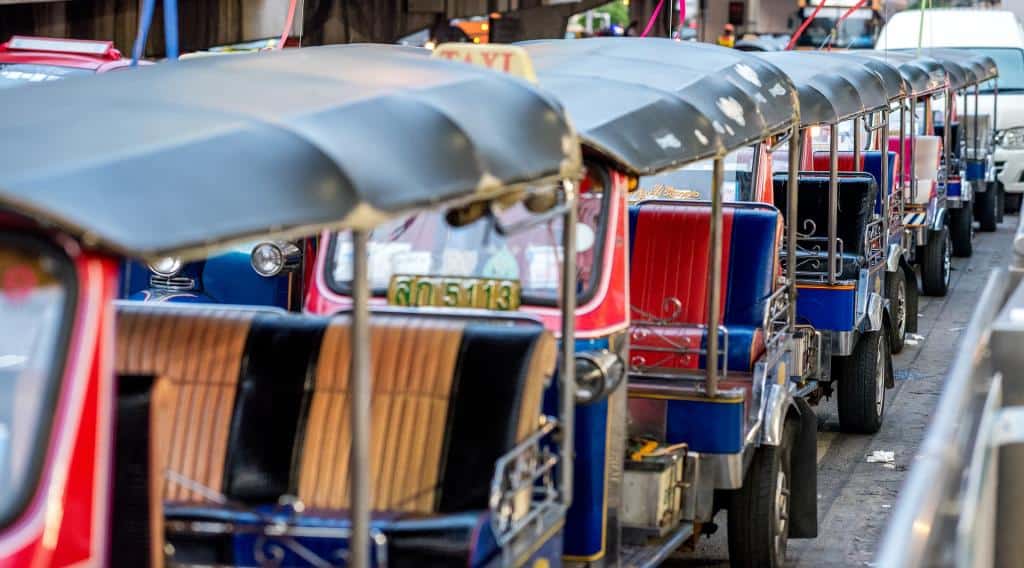
Tailors
This is where they will bring you if you have fallen for the tuk-tuk scam. One common scenario is that the tuk-tuk driver will tell you he needs a moment for a toilet break. Next, a stranger will approach you and start making small talk. They’ll mention a bargain they found at a tailor shop. They’ll bring up Armani suits and how he wears them for work every day. They may even mention celebrities who are also customers. You, the unsuspecting tourist, will inquire about the location of the shop. All of a sudden the tuk-tuk driver will reappear and offer to take you there.
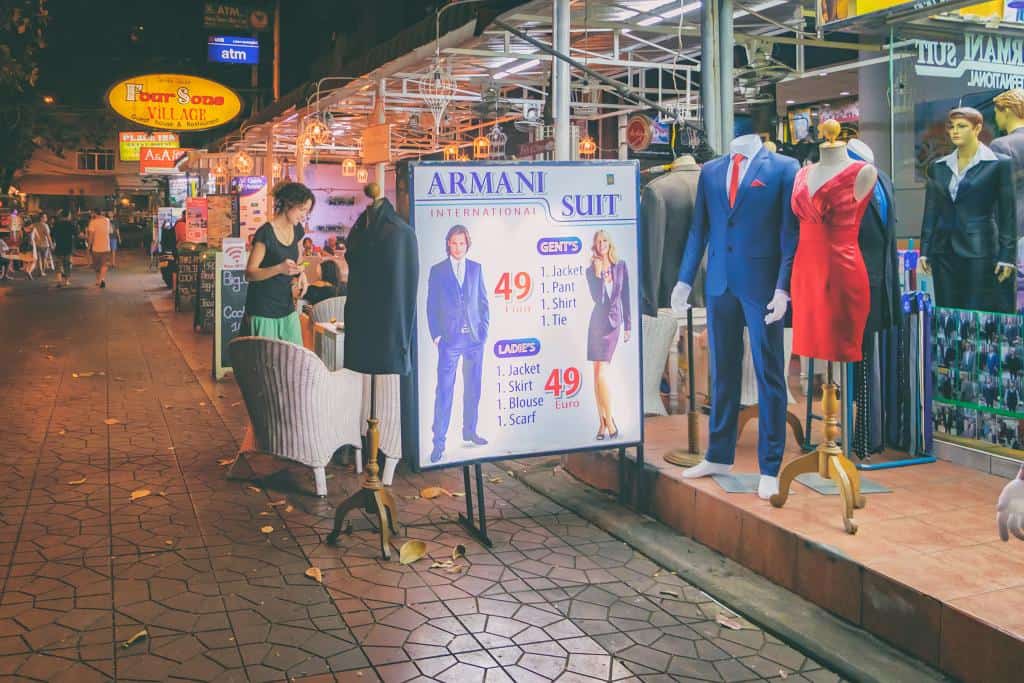
When you arrive at the shop, you may be tempted to agree to pay everything up front – don’t. The prices will seem like a good deal. The shop might even promise international home delivery. What you’re actually paying for, though, is a cheap polyester suit—not the higher quality threads as promised.
Rule of thumb: search online for reviews of any shop you consider and never take advice from random strangers unless you ask for it. A 50% deposit should be required in most suits, and normally this covers the cost of labor and materials for the person making it. If you decide not to buy it, the suit usually ends up on the rack to be sold later. Providing the 50% upfront is fair, but you should never be pressured into buying if the end result feels like a bad fit. Normally, a tailor will agree to make the modifications required in order for a perfect fit, and it’s usually done without the tailor asking for more money. The only situations where they should rightfully ask for more money are changes or new items that require more material.
Fake Police
This scam typically happens when someone approaches you and asks to see your passport. He will then “find” something wrong with your Thai visa and will ask to pay a fine on the spot. In these cases, it is your decision to pay or not, but the policeman may or may not be real. As a proper caution, make sure you do not overstay your visa. Fines can be hefty. Always make sure that you’re dealing with an authentic company if you choose to extend your stay.
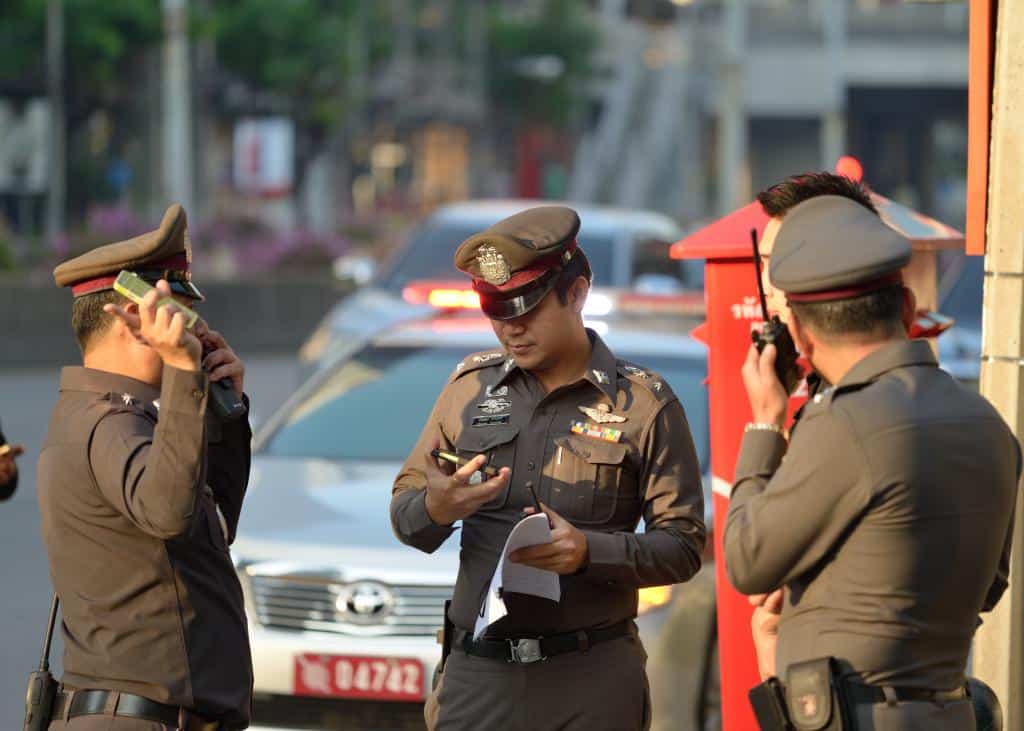
Fake Baht
This Thailand scam happens when you pay for an item in a shop. The shopkeeper will swap your note for a phony one and will then claim that your note is faked. He will then give you back the counterfeit note and demand a new payment. To avoid this, never let any note out of your sight. This is especially important when you’re using the 1000 baht note, the most common scenario for these scams. It wouldn’t hurt to keep track of the serial numbers on your larger purchases.
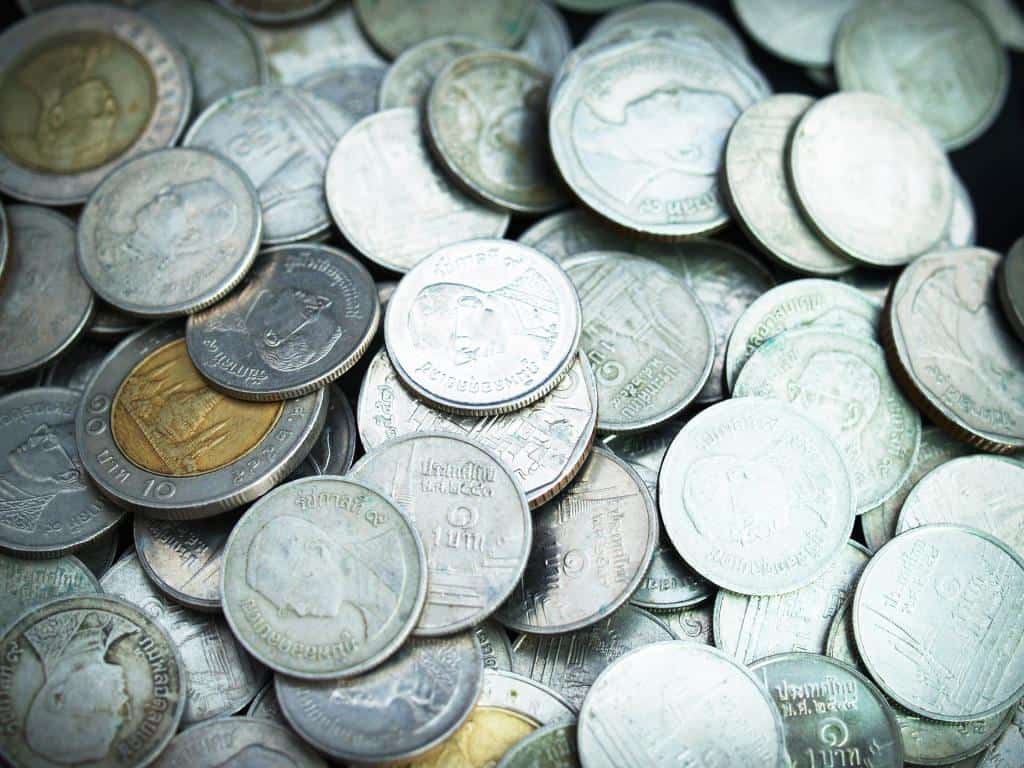
This can also happen in bars. Typically the same tactic is used. The barkeeper may also give you change with fake currency. One way to test the legitimacy of a note is to scrunch it up. Real notes will unfold on themselves. Most real notes will have a certain feel to them and a watermark that is easily identifiable if held up to the light. However, it is important to remember that this will not always protect you in every situation. An even better way to reduce the risk of having money stolen is to ask for smaller bills when exchanging currency. It’s never a good idea to carry around wads of 1000 baht bills. Less is more.
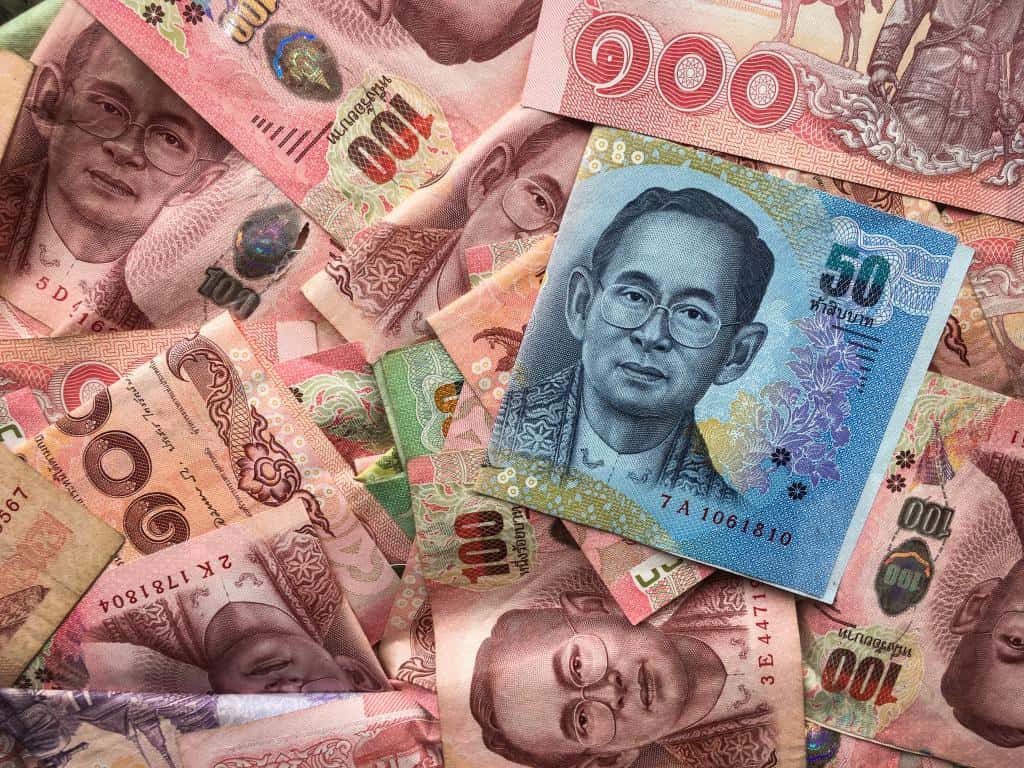
Patpong Sex Shows
Patpong is Thailand’s red light district. Once you arrive, you will be given a “menu” or a list of all the fun acrobatic performances available to take in. Workers will then lead you to a shady, unknown bar upstairs where you will be made to pay for a couple of “lady drinks” for the girls sitting at your table. The show only includes a few simple poses and after it’s over you will be asked to tip generously.
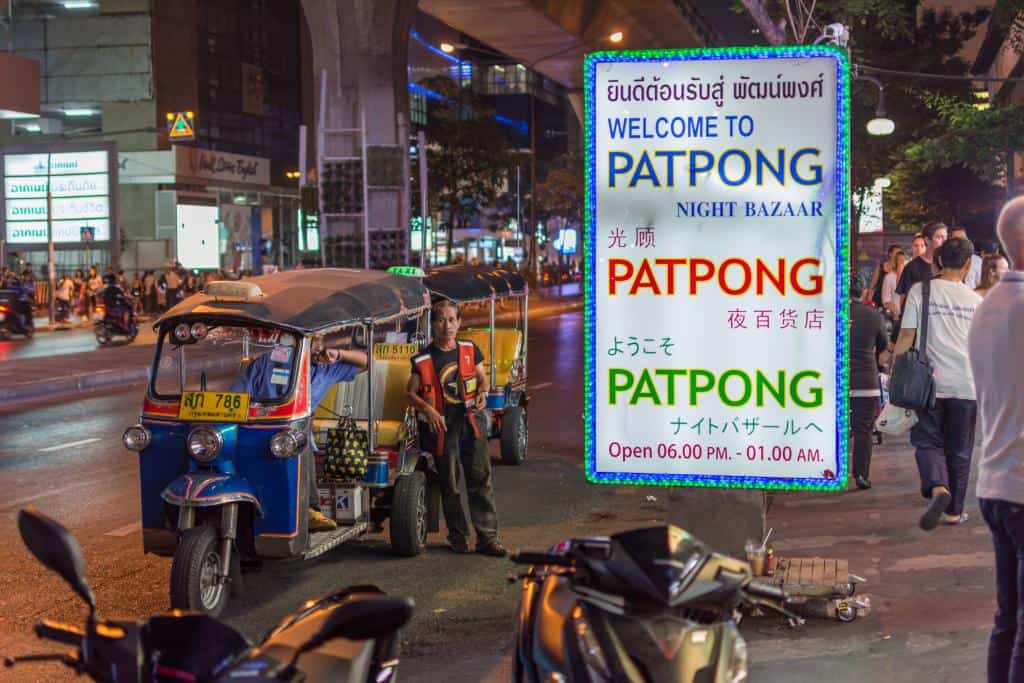
But, if you begin to suspect that you’re being scammed and try to leave they will slap you with an expensive bill. You’ll be forced to pay it as burly, threatening bouncers standby. If you are going to frequent these types of bars then something like this will probably happen to you sooner or later. We would suggest keeping your wits about you at all times and avoiding private shows.
Jet Ski or Moto Damage
This one has been reported in areas such as Pattaya and Phuket. At some Jet Ski rental shops, employees will claim that you’ve damaged their device and will demand a repair fee. If you refuse to pay, “men in uniform” will come and threaten to arrest you. The same applies to rented motos and other equipment. It is important to ask around for recommendations before you rent a Jet Ski. If possible, try not to use your passport as a security deposit. Next, make sure to examine the Jet Ski. If necessary, document or take photographs of its condition. Again, by asking around for references you should be able to avoid the small number of unscrupulous Jet Ski operators.
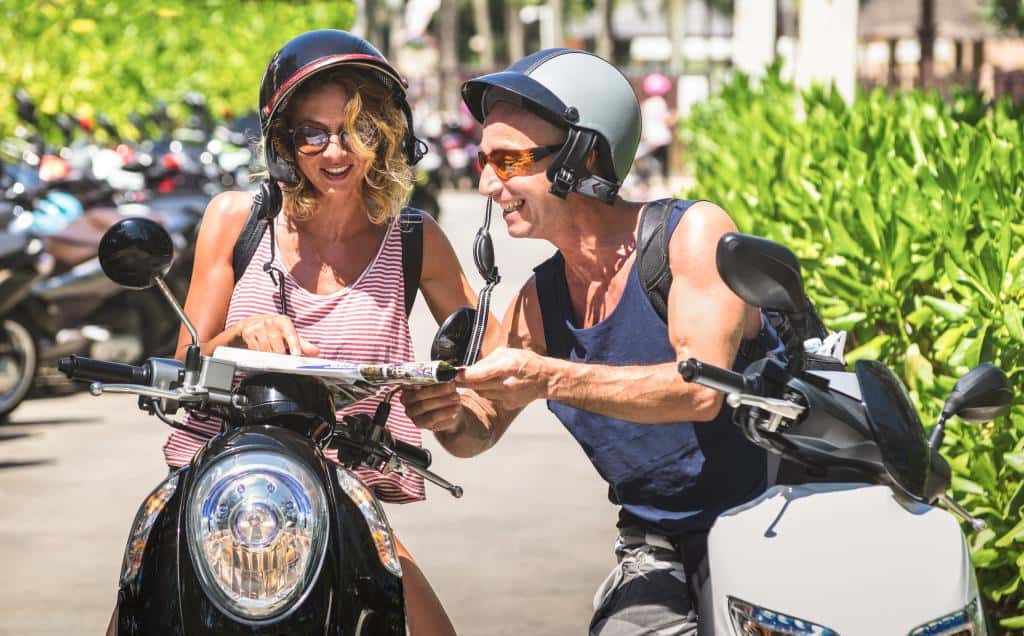
Long Distance Bus Rides
There have been many reports of personal items being stolen from bags on overnight bus trips in Thailand. Some have even reported being drugged and waking up with their money stolen. Be sure to secure your bags with a lock, and always be careful not expose your valuables in public. It is also important to be cautious of private bus companies with VIP buses because it is not unusual for crime to happen when traveling. In general, it’s a good idea to keep your valuables close by rather than in the storage compartment. This is true on any bus ride, not just in Thailand.
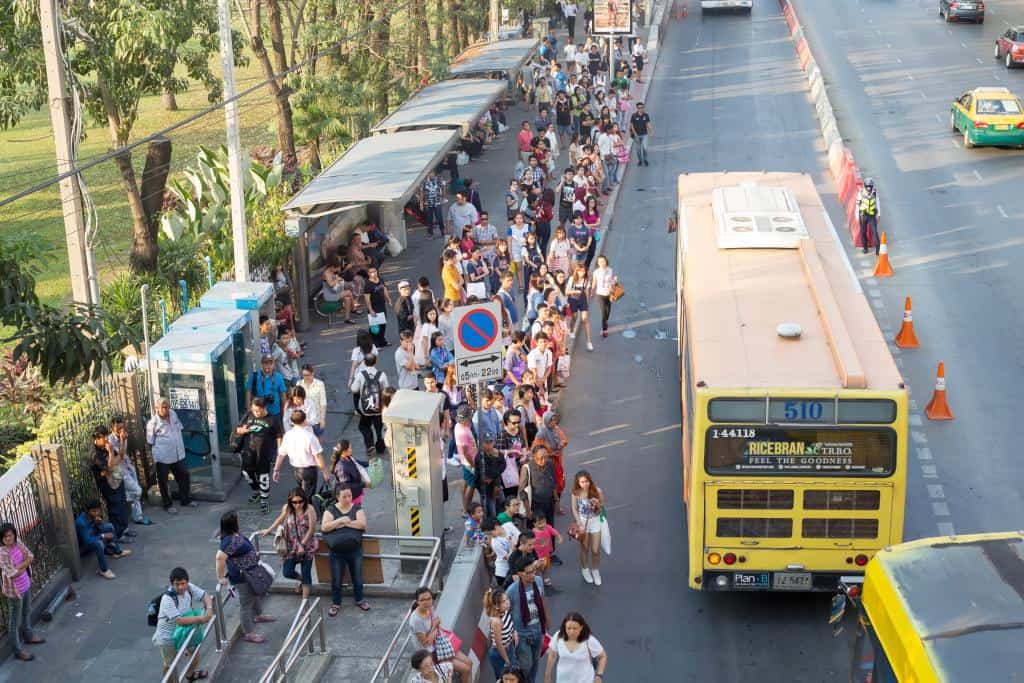
Identity Theft or Credit Card Fraud
According to Thailand 2015 Crime and Safety Report, credit card fraud and identity theft operations are common Thailand scams. Many foreign visitors have had their passports, wallets, and other valuables stolen. It usually occurs in crowded areas like Bangkok’s Chatuchak Weekend Market on Khao San Road. Typically pickpockets and thieves in busy crowds cut into purses or bags with a razor sharp object and remove the items undetected.
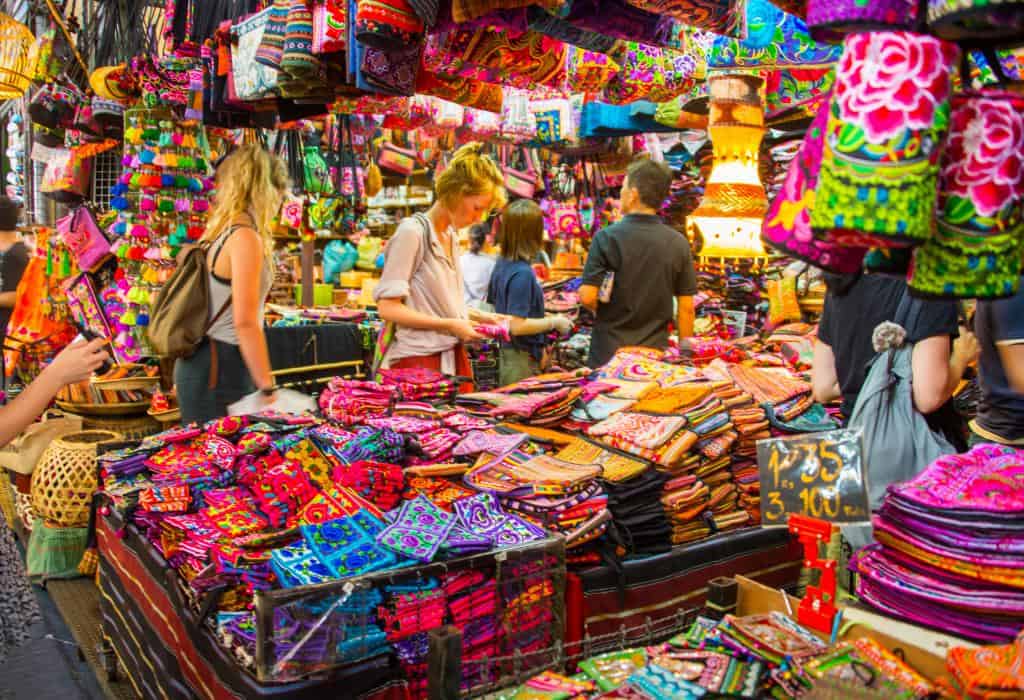
Another group of tourists who are easily targeted are those who solicit services of commercial sex workers. Credit card user information is usually stolen from ATMs through sophisticated “skimming devices” perpetuated by international criminal organizations. The obtained information is used to withdraw money from the victim accounts. According to an article in Nation Multimedia, Thailand is one of the leading destinations in the Asia-Pacific region for card fraud. As mentioned above, always use ATMs associated with reputable businesses.
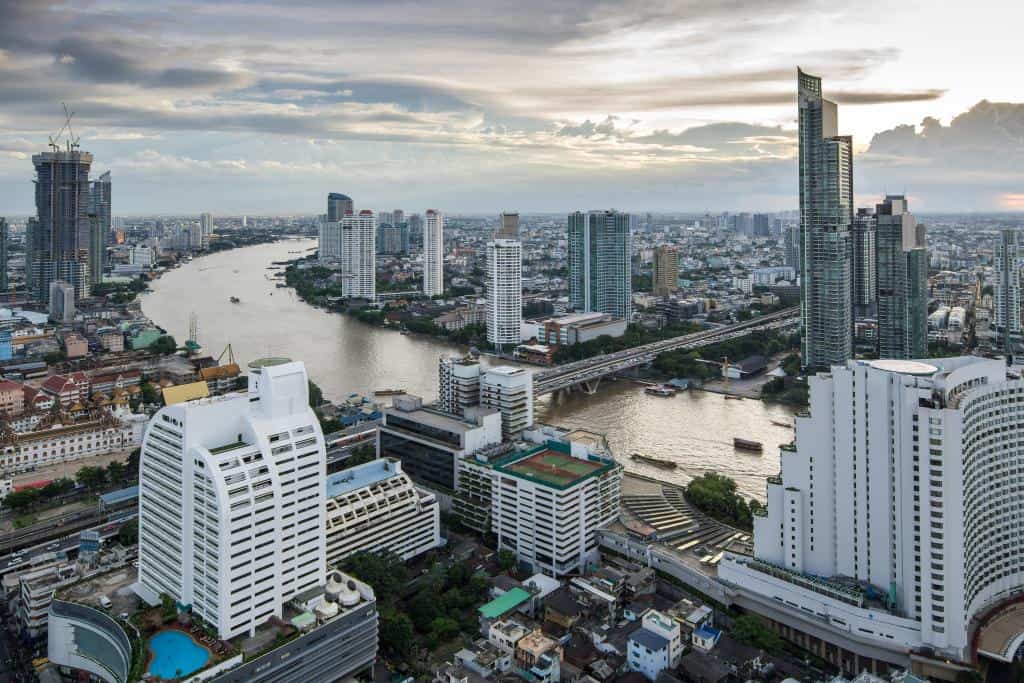
More Tips for Backpacking Thailand:
- Personal security measures and common sense should be exercised at all times. Never travel alone, especially at night. Avoid walking in dark alleys.
- Always be careful and safeguard your valuables. Always stay wary when walking in crowded markets, tourist sites, and bus or train stations. Never leave your possessions unattended, particularly in public areas. Thefts usually occur when your attention is momentarily diverted.
- Make sure to exchange your money at the airport or any other reputable money exchanging services directly.
- Only use trusted ATMs. Those connected to banks or inside well-established, reputable hotels, restaurants, and businesses are safe bets.
- When traveling alone make sure to stay near other travelers. Let your friends or family know where you are at all times. Better yet, it’s always safer to travel with friends or relatives.
- Never leave your drink unattended and do not accept beverages offered by strangers. If you think you have been drugged seek medical attention immediately.
Find out more by checking out our Bangkok Backpackers Guide and our other guides to backpacking in South East Asia. If you have found this article useful please share it to help other travelers to find the information about Thailand Scams and Bangkok Scams.
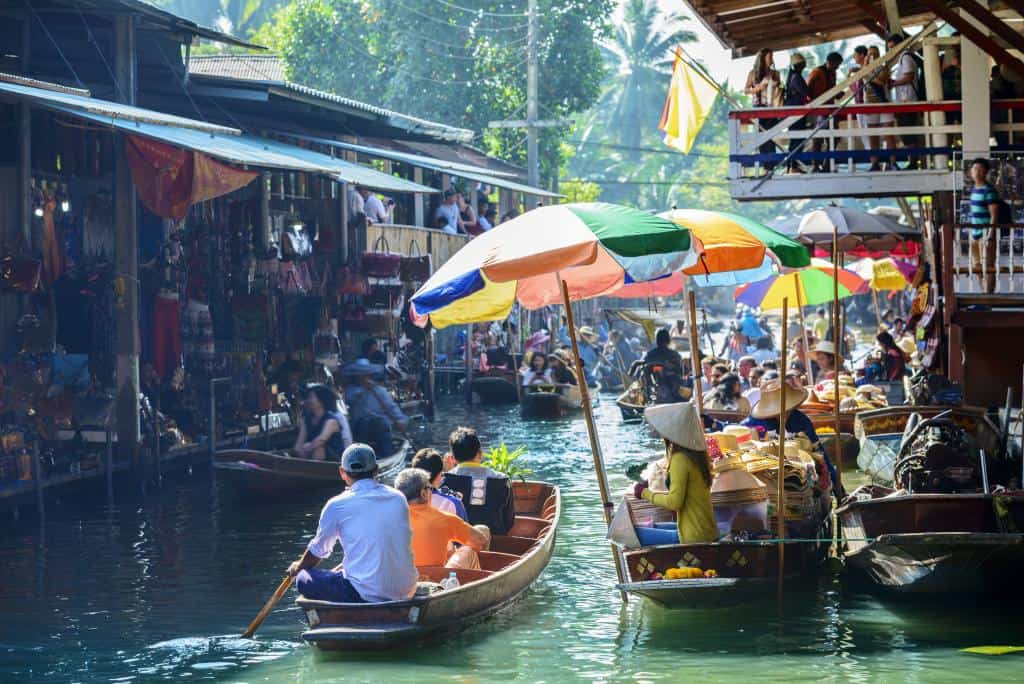
Telephone Numbers for Crime Victim Assistance
- The general police emergency number is 191.
Bangkok
Police, Routine (Metro): 02-280-5060
Tourist Police: 1155
Fire/Emergency: 199
U.S. Embassy: 02-205-4000
Chiang Mai
Police, Routine (Local): 05-327-6040
Tourist Police: 1155
Phuket
Police, Routine (Local): 07-621-2115
Tourist Police (Local): 1155
More Information About Scams in Thailand
There were more scams that we dug up during our research and have listed them here. We will also keep this page updated as new ones come up.
- Thailand to Cambodia: How to Avoid Scams at the Border for Just a Pack
- Politeness in Thai Culture for Transparent
- Being Polite in Thailand for Thaizer
- Body Language in Thailand for Phuket.com


